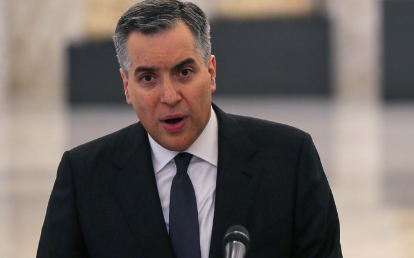Lebanese Prime Minister-designate, Mustafa Adib, who took the job to help the country recover from August’s devastating blast in Beirut, said on Saturday he is stepping down without forming a new government, citing political infighting.
SEE ALSO: Protesters Rally In Mail After Rejecting Presidents Concessions
State-run National News Agency reported that Adib announced his resignation following a meeting with Lebanese President Michel Aoun at Baabda Palace.
The Lebanese presidency tweeted that Adib met with Aoun to review the difficulties he faced in his bid to form the government and submitted his resignation.
“The president accepted the resignation and will take the appropriate measures in line with the constitution,’’ the presidency said.
Adib, a former ambassador to Germany, was designated as premier by Aoun on Aug. 31, replacing Hassan Diab, who stepped down after anti-government protests sparked by the Aug. 4 blast.
The blast killed at least 190 people and left 6,000 others injured.
It has been blamed on official negligence, which allowed tons of explosive material to be stored at the port for years.
Adib’s resignation is a blow to French President Emmanuel Macron’s initiative to press Lebanese politicians to form a Cabinet of independent politicians, which is able to handle the country’s economic crisis.
Macron, who emerged as the main power broker for Lebanon, had set a 15-day deadline for Lebanese political forces to form a government during a visit to Beirut on Sept. 1.
According to a government source, the main reason for the resignation is political bickering among rival political groups.
“This is bad news for Lebanon as this was our last chance to gather international support around a new government made up of independent experts to tackle the country’s economic woes,’’ the source told dpa.
The country’s Shiite groups, Amal movement and Hezbollah, have insisted on maintaining the Finance Ministry portfolio in the new government.
Lebanon is experiencing its worst economic crisis since its 15-year civil war ended in 1990.



Leave a Reply